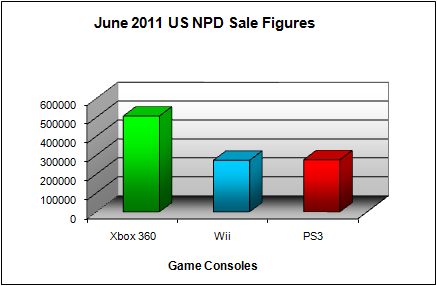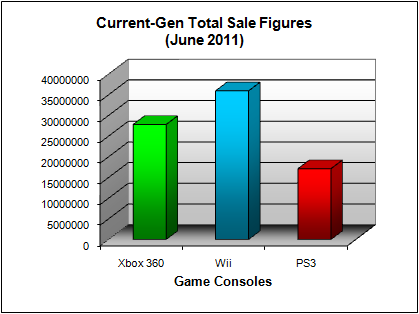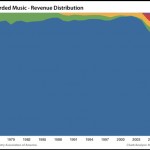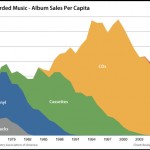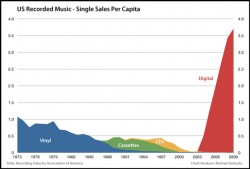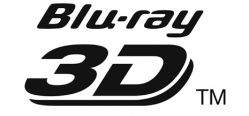Hope the past week has treated you well? Me, same as usual, and not getting that much work done despite feeling like I’ve done a lot of work (yeah, one of those weeks). I did re-organize the forum a bit (and yes, we do have a forum, it seems to be a fact that’s not commonly known going by the forum’s visitor stats), tried to reduce the number of forums, and re-focus some of the discussions. And so if you ever have a digital video authoring, conversion, editing or encoding problem, or want to post your opinions on some of the news articles mentioned in the WNR (there should be a thread for each news item linked to here in the “Latest News” forum), then feel free to pop over and I’ll be there to say hi.
A couple of interesting stories to go through this week, so let’s get started before it becomes August.
 Let’s do something different and start with the copyright news. The world’s unluckiest file sharer, Jammie Thomas-Rasset. Not that being fined $54,000 for downloading 24 song can be considered luck, but when you’re that unlucky, you have to take what you get.
Let’s do something different and start with the copyright news. The world’s unluckiest file sharer, Jammie Thomas-Rasset. Not that being fined $54,000 for downloading 24 song can be considered luck, but when you’re that unlucky, you have to take what you get.
For what seems like the billionth time, Thomas-Rasset has received a new figure representing the damages she needs to pay the RIAA, for daring to do the incredibly nasty act of downloading 24 songs without paying. Once again, a judge had to intervene and overrule an earlier jury decision to award the RIAA $1.5 million, by reducing the damages to “only” $54,000. The judge cited the Constitution and justice as reasons for reducing the unjustifiable 7 figure damages reward. The RIAA has voiced their disapproval at the decision, and it does not surprise me one bit the RIAA seems to have no respect for either the US Constitution or justice. Hopefully, Thomas-Rasset will not make the earlier mistake of trying to appeal the decision, and simply pay the $54,000 (or make some kind of financial arrangement), as her previous attempts at reducing damages has not worked, other than to add to her mounting legal bills. But even if she accepts the terms, the RIAA could still appeal, all the way to the Supreme Court, because reports suggests they’ve already spent at least $3 million on the case, which they hoped would be a deterrent for music pirates (hasn’t really worked), and $54,000 is not much of a deterrent compared to $1.92 million.
A couple of weeks ago, I brought to your attention the MPA’s (the International arm of the MPAA) UK high court battle with UK ISP BT (holy trinity of acronyms, Batman). The high court has handed down its decision, and it’s one that will have long lasting repercussions. The judge has ruled that BT should help the MPA block Newzbin2 so BT’s subscribers cannot access the website. BT’s arguments that they’re simply an utility, like an electricity provider, did not wash with the judge who ruled that, unlike an electricity company, BT is fully aware of what its subscribers are using its services for, and thus, has the responsibility to turn off supply if the uses are judged to be unlawful. The major problem with this argument is that it assumes just because BT *can* find out what its services are being used for, that it *should* find out and help groups like the MPA monitor usage. It’s like saying the phone company can find out about all you by listening on your conversations, and so because *can*, they *should* (and then should report or tak action against unlawful activities). The second problem with this decision is that, the judge, MPA and even BT are satisfied that Newzbin2 does distribute unauthorized content, based on an earlier high court case, but that case was for the UK operated Newzbin. Nobody has actually bothered to establish the guilt or even the ownership of Newzbin2, and while it might be obvious in this case that both sites are trying to do the same thing, the question is does the MPA need to launch a new lawsuit against, say, The Pirate Bay, or can they use this decision to force all ISPs to block any website they allege is promoting piracy?
But in the world of Internet piracy, mere allegation is “good enough” it seems, and hardly any distinction is made between sites that host, link, embed, or link to links, because if the RIAA/MPAA says you’re bad, then you must be. Staying in the UK, and taking the “allegations equals guilt” model further, a new plan wants search engine results to be classified by a “traffic light” system, where “bad” sites that may be offering pirated content are marked with a red light to warn users not to use these sites. Without getting into the implementation issues of a system that’s supposed to judge and classify billions of web pages, this whole idea assumes that people, the so called “moral majority”, aren’t aware that they’re visiting certain websites and the content there is not legal, and so would be warned away by a simple graphic. I think if people aren’t aware of what they’re downloading, listening to, or watching is legal or not is mainly because they don’t care. You go to YouTube and watch a music video, do you really care that much if it’s an official, authorized upload, or one of the billion mirrors for the same thing. And when people watch on MegaVideo, or download from RapidShare, are they really so clueless that they haven’t worked out that it isn’t legal, and do they really care, especially knowing that these download methods are not being monitored for anti-piracy activities? I guess the only positive of this plan is that it will make finding pirated content a lot easier – simply follow the “red lights”, to get all your piracy fix.

HBO has been used as a example in a new study that tries to show improving quality best helps to fight piracy
I’ve always said the best way to combat piracy is to increase quality (or at least decrease price so that it fairly reflects the product’s lack of quality). Now, people way smarter than me have written a new study that tries to quantify, what seems to me, is common sense. The new study specifically cites HBO and Valve as examples of where quality improvements have led to reduction in piracy and, most importantly, an increase in revenue. To me, both of these companies are innovative in their approach (HBO Go is very useful, if you’re in the US, and we all know Valve has single-handedly saved the PC gaming industry via the Steam model), and neither has focused their energy on copyright enforcement (take Steam’s DRM approach, for example). The study also reinforces this point, that the companies focused less on copyright enforcement tended to focus more on quality, and as a direct result, has more successfully raised their revenue. The study doesn’t mention Ubisoft’s draconian DRM approach, but I think it would make an interesting study in itself, to map out the full effect of Ubi DRM in regards to piracy rate and revenue, compared to say the success of Valve with their games, and also the Steam model.
But as far Ubisoft is concerned, Ubi DRM is a huge success. I know this because they’ve come out and said it, that Ubi DRM is a huge success. They say it’s a huge success because they have stats that show piracy rates have decreased dramatically for games that uses the “always-on Internet connection required” DRM. And you know what, I don’t doubt that at all. But you can often tell the truth not by what someone says, but by what they don’t say, and Ubisoft didn’t really mention revenue at all, which is strange. Considering that Ubisoft used the phrase “clear reduction in piracy”, you would think there would be a “clear increase in revenue” to follow that statement. But this statement was not made, and so I can only assume that revenue has not risen (and it’s hard to calculate anyway, as how can you compared say the revenue made from one game release to that of another?). The problem is that decreasing piracy does not mean increasing revenue, because pirates have a huge choice of pirated games to play, and if they don’t find one available (because the DRM hasn’t been cracked yet), they’ll just play another (even the most avid pirate gamer can’t possibly play all the pirated games out there). And this assumes Ubi DRM is hard to crack, which is not true any more. And there are also negative forces in play, with excessive DRM causing a drop in revenue as paying gamers, who also have far too many games to choose from, choose games that don’t use Ubi DRM. During the recent Steam Summer sales, I saw countless comments on countless forums where people posted their hesitation in buying Ubisoft games due to Ubi DRM, despite games like Assassin’s Creed 2 being on sales for less than $7 (and only committed in the end because others replied saying Ubisoft have toned down Ubi DRM in older releases). So how much money is Ubisoft losing because of Ubi DRM?
Of course, for truly great must-have games, gamers will put up with ridiculous DRM, but for these types of games, even some of the biggest pirates may come out of the woodworks and make this the one game they do buy. Quality is still very much king.

In Blu-ray/3D news, apparently the Windows 7 (and Vista) native Blu-ray burning tool has a huge bug that prevents successful burns, if the compilation size is over a certain size.
This comes as a huge surprise to people because, one, they didn’t even know that Windows 7 could burn Blu-ray discs, and two, they didn’t know why anyone would use the native Blu-ray burner, when you’ve got cool free tools like ImgBurn (whose official website is proudly hosted by us).
From analysing the very small amount of information Microsoft released about the bug, it appears the bug could be related to how Microsoft loves using Binary prefix, while storage manufacturers prefer to use SI prefix. With SI prefix, 1 KB is 1000 or 10^3 bytes, while with binary prefix, it takes 1024 bytes, or 2^10. So 25GB with SI prefix is only equal to about5 23.3GB with a binary prefix (to avoid confusion, a new standard was set up to use KiB, MiB and GiB to indicate binary prefix, but hardly anyone uses it, and certainly not Microsoft). So maybe Microsoft’s native Blu-ray burner thought that discs could hold 25GB in Windows notation (or 25GiB), even though Blu-ray only holds 23.3GiB, and so of course the burns would fail is the tool doesn’t warn users that they’re trying to burn over the allowed limit. This seems like a simple fix, so it’s strange that there’s no hotfix, or even a hint of one from Microsoft, for this bug that seems to have been present since Vista SP2 introduced Blu-ray burning support.
![]()
And in gaming, not much again, except two more stories about Sony. The first one has Sony being sued again over the PSN hack, but this time by their own insurer, as Zurich American tries to get out of having to pay Sony to cover the costs of expected class action lawsuits and settlements related to the hack and outage.
It’s probably just standard procedure for insurance companies, or it could mean that Zurich American really thinks that the class action lawsuits could end up costing Sony a lot, and they want to protect themselves as early as possible. I don’t think even Sony feels they can placate everyone angered by the PSN hack just by giving them a couple of outdated games, despite inFAMOUS being pretty good fun.
The other news relates to Sony’s profit results for fiscal Q1 (April 1st to June 30, covering the entire PSN hack saga), and it’s not great news. PS3 console unit sales dropped by 25% compared to the same quarter last year, although Sony still expects the fiscal year to end in growth of the console. Surprisingly, the PSP was the only Sony console to see a unit sale increase, but that’s probably due to the super discounting that has been going on ($99 for a PSP with God Of War Ghost Of Sparta, is pretty good value here in Australia). And more surprisingly, PS2 sales are still holding up well, almost selling as many units as the PS3 (1.4m compared to the PS3’s 1.8m). It just shows how successful the PS2 was, and how Sony have totally failed to replicate the same success with the PS3. Globally, the PS3 still managed to outsell both the Wii and Xbox 360 (individually, not combined), thanks to strong performances in Japan, but the Xbox 360 was the only console to record growth out of these three.
And that brings us to the end of this WNR. Have a good one.






